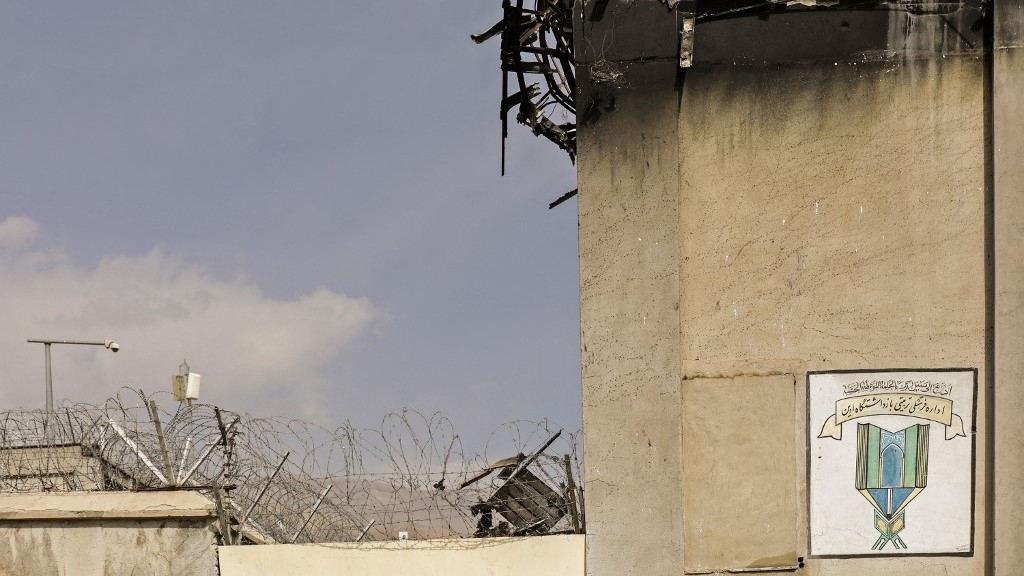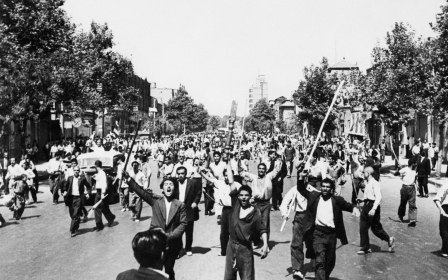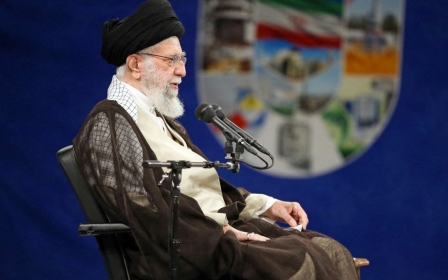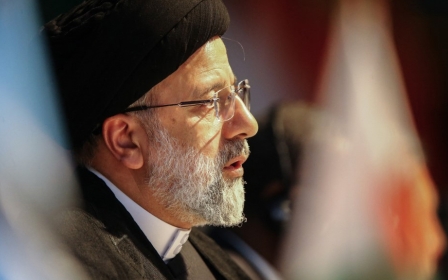Iran: US agrees to drop sanctions on $6bn in frozen funds in prisoner swap deal

The Biden administration has waived sanctions on the transfer of $6bn in Iranian funds from South Korea to Qatar, which will pave the way for the eventual release of five US citizens held by Tehran.
As part of the deal, the administration has also agreed to release five Iranian citizens held in the US.
The waiver, signed by Secretary of State Antony Blinken, now allows international banks to handle the Iranian funds without fear of sanctions.
The US Congress was informed of the decision on Monday. It was also acknowledged for the first time that the five Iranian citizens would be released.
"On September 8, Secretary Blinken undertook a procedural step in an ongoing process to ensure Iranian funds can move from one restricted account to another and remain restricted to humanitarian trade," National Security Council spokesperson Adrienne Watson said in a statement.
New MEE newsletter: Jerusalem Dispatch
Sign up to get the latest insights and analysis on Israel-Palestine, alongside Turkey Unpacked and other MEE newsletters
Under the terms of the deal, the frozen money, which is the proceeds of past Iranian oil sales, will be transferred to Qatar's central bank and distributed in tranches for the purchase of humanitarian goods.
The American prisoners are Siamak Namazi, held in 2015 and sentenced to 10 years in prison, Emad Sharghi, a businessman sentenced to 10 years, and Morad Tahbaz, a British-American conservationist arrested in 2018 and jailed for 10 years. All three men were held on spying charges.
The fourth and fifth prisoners to be released have not been identified.
Four of the Iranian prisoners to be released are Mehrdad Moein Ansari, Kambiz Attar Kashani, Reza Sarhangpour Kafrani, and Amin Hasanzadeh.
They were convicted of sending information to Iran or sending equipment to Tehran that the US had deemed prohibited.
The fifth, Kaveh Afrasiabi, is a US-based political scientist and author who was charged in 2021 for failing to notify US authorities that he had a relationship with Iranian authorities.
In June, Middle East Eye first reported that relations between Washington and Tehran were progressing and the two sides had agreed to an interim nuclear deal, where the Islamic Republic would not enrich uranium to 60 percent and would cooperate with the International Atomic Energy Agency (IAEA) for the monitoring and verification of its nuclear programme.
In exchange, Tehran would be allowed to export up to a million barrels of oil per day and gain access to its income and other frozen funds abroad. Those funds would have to be used exclusively to purchase a range of essential items, including food and medication.
Days later, Iran's Supreme Leader Ayatollah Khamenei said he could endorse an agreement with the West if Iran's nuclear infrastructure was kept intact. Khamenei also said that Iran should maintain at least some cooperation with international nuclear inspectors.
However, sources later told MEE that the US insisted that further progress could not be made unless an agreement was reached over the issue of US-Iranian dual national prisoners.
Middle East Eye delivers independent and unrivalled coverage and analysis of the Middle East, North Africa and beyond. To learn more about republishing this content and the associated fees, please fill out this form. More about MEE can be found here.





